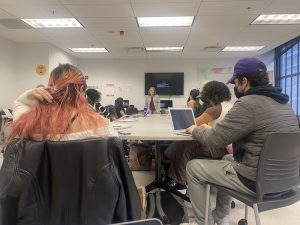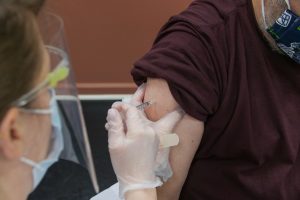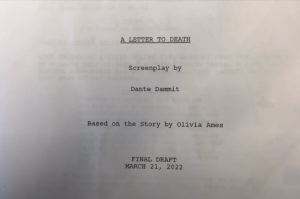The blood and food stains on Randy Boese’s shirt and bed are highlighted by the sun, which is shining through Boese’s bedroom window at his West Side community clinic, a room he shares with three other men.
The 59-year-old former Chicagoan is homeless and being treated at Central Nursing and Rehab Center, for a foot fungus. That isn’t Boese’s most pressing malady – he also suffers from AIDS, Hepatitis A, Herpes and borderline Schizophrenia but it is treatment he may lose under Illinois’ next budget.
Republican Gov. Bruce Rauner’s proposed budget eliminates nearly $1.5 billion from Medicaid funding, and will affect treatment for everything from adult dental care to podiatry (foot and ankle care), to hemophilia.
The budget would also cut funding for mental health rehabilitation facilities and reduce hospital funding by about $735 million.
Danny Chun, vice president of corporate communications for the Illinois Hospital Association, said in a statement that Rauner’s proposed cuts will not only affect hospital services but could also jeopardize the $400 million that hospitals provide annually to community clinics like Central Nursing and Rehab.
Mae Yee, who for two years has been Boese’s caseworker through the Humble Hearts Foundation, said these cuts will directly impact Boese, who in addition to his podiatry needs, could also lose mental health treatment and dental assistance, which is important for a man who suffered the loss of all his teeth.
“I lost all of my teeth because of drinking pop,” Boese said. “I learned how to eat chips though. I place them on the roof of my mouth. It works pretty well.”
Along with Medicaid cuts, Rauner has also proposed reinstating the Save Medicaid Access and Resources Together, or, SMART act, which was originally signed into law by former Gov. Pat Quinn in 2012 in order reign in ballooning healthcare costs but was derailed by lawsuits.
Rauner wants to use SMART to purge fraudulent enrollees of Medicaid, but Barb Otto, CEO of Health and Disability Advocates, said the act, which requires individuals to receive mailed paperwork to prove their eligibility, is onerous on homeless people who can’t easily receive mail or provide necessary information.
“For many individuals like (Boese) who don’t have family members to help them or don’t have access to the Internet or a phone, it is hard to know they need to send in this paper work,” Otto said.
“This is what happens when we take this approach to cut people off, without thinking about a comprehensive strategy to make sure we aren’t cutting the ones who need it the most.”
Asian Human Services Chicago, a social services organization, is working hard to find Boese permanent housing, hopefully allowing him to keep his Medicaid eligibility.
Until then, Boese sits in his clinic bedroom and sings – “I can’t wait to get out of this place, if it’s the best thing I ever do. . .I need to get out of this place, while there is a better life for me and you. . .”
















Be First to Comment